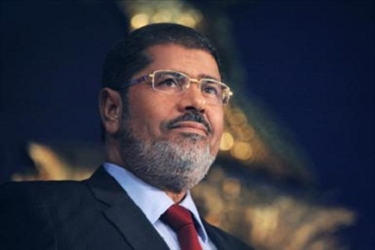 Today, 31 May 2013, the Cairo Institute for Human Rights Studies (CIHRS) presented an oral intervention about the freedom of association in Egypt to the United Nations Human Rights Council (the Council), whose 23rd session is currently convened in Geneva and will continue until 14 June.
Today, 31 May 2013, the Cairo Institute for Human Rights Studies (CIHRS) presented an oral intervention about the freedom of association in Egypt to the United Nations Human Rights Council (the Council), whose 23rd session is currently convened in Geneva and will continue until 14 June.
CIHRS drew the attention of the Council to the dangerous developments which threaten the independence of civil society in Egypt, emphasizing that the bill submitted by the Egyptian presidency to the Shura Council on Wednesday, 29 May affirms that the current regime aims to repress civic activities. CIHRS asserted that the underlying philosophy of the authorities in drafting such bills views civil society as an enemy to be suppressed rather than a partner in the efforts to build democratic governance in Egypt. CIHRS called upon the Council to urge Egypt to adopt a new approach in dealing with civil society and to adopt a law that fully upholds international standards.
Yesterday, 40 Egyptian rights and development organizations issued a statement in which they declared their rejection of the president’s bill, justifying their position based on analysis of the content, which constitutes serious violations to the right to freedom of association and to international standards. In the same context, the oral intervention presented by CIHRS emphasized that the bill proposed by the presidency disregards the concerns and recommendations of Egyptian civil society organizations as well as the recommendations of international experts, including the High Commissioner for Human Rights, three UN Special Rapporteurs, and experts from the European Union.
The intervention examined a number of the problematic provisions of the bill, including a prohibition on the work of informal organizations, which would affect a number of civic groups formed after the revolution. Other problems including severe restrictions on joint NGO work, excessive oversight powers given to the authorities – including through a Steering Committee which would likely include representatives from the security apparatus – strict controls on foreign organizations, restrictions on funding, and a failure to provide for a registration process through notification rather than prior authorization.
Finally, CIHRS stressed that removing one or some of these restrictive provisions would not suffice, as any one of these legal restrictions would be enough to allow the authorities to severely curtail the work of Egyptian civil society.
Share this Post
